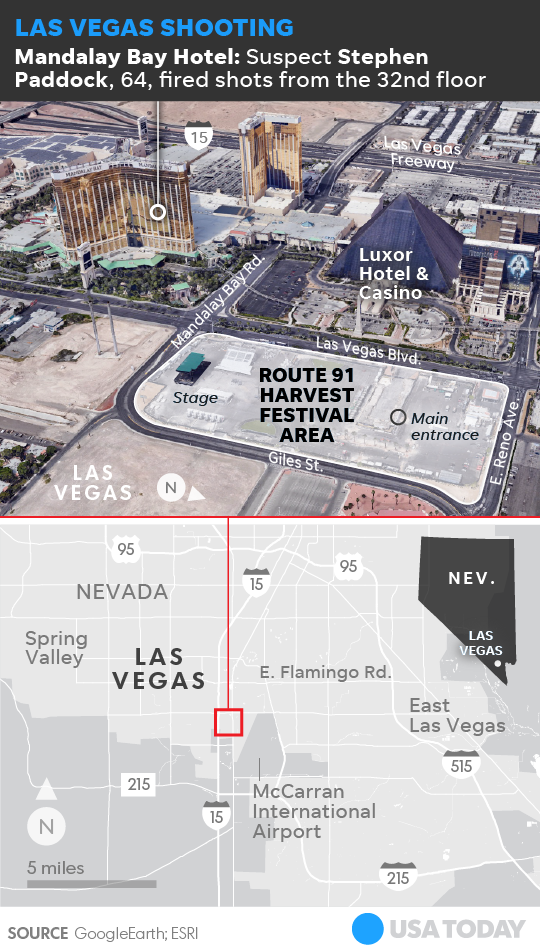The Las Vegas Shooting of 2017 stands as one of the most tragic events in recent American history. On October 1, 2017, a peaceful music festival turned into a scene of chaos and devastation when a lone shooter opened fire from a hotel room onto the crowd below. The event left an indelible mark on the city, the nation, and the families of those affected. In the years since, efforts have been made to honor the victims and ensure that their memory is preserved for future generations.
Today, technology plays a significant role in helping people explore and understand the impact of such events. Tools like Google Maps provide a way for individuals to virtually visit memorial sites and learn more about the locations associated with the shooting. This article delves into how these resources can be used to remember and reflect upon the tragedy while offering insights into related topics such as mapping technologies and gun culture.
Exploring Memorials Through Digital Maps
Google Maps has become an invaluable tool for exploring not only physical spaces but also emotional landscapes tied to historical events. For instance, users can now save specific locations related to the Las Vegas Shooting directly within their accounts. By doing so, they create personalized collections that allow them to revisit important places at any time. Whether it’s the site of the Route 91 Harvest Festival or nearby memorials erected in honor of those lost, this feature fosters connection and remembrance.
One example comes from the subreddit R/vegaslocals, where locals discuss ways to preserve memories using digital means. Members often share tips on saving key spots through Google Maps, encouraging others to engage with local history digitally. Such initiatives highlight how modern tools enable communities to come together despite distance, fostering unity around shared experiences.
Moreover, interactive features offered by platforms like Google Maps empower users to contribute content themselves—adding photos, reviews, and personal stories to enrich collective knowledge about significant locations. This collaborative approach strengthens communal bonds while ensuring accurate representation across diverse perspectives.
Mapping Resources Beyond Borders
The Bureau of Land Management (BLM) provides extensive mapping resources that extend far beyond urban areas like Las Vegas. Their California Maps section offers detailed overviews of federal lands, private properties, waterways, roads, and towns throughout the state. These comprehensive maps serve both recreational enthusiasts planning outdoor adventures and professionals requiring precise geographic data for projects.
Interactive map viewers developed by BLM allow users to customize views by toggling various layers on or off, tailoring information displayed according to individual needs. Additionally, downloadable georeferenced PDF maps eliminate reliance on cellular networks, making them ideal companions during trips to remote regions without reliable signal coverage. Such versatility underscores the importance of accessible geospatial tools in today's world.
Furthermore, BLM’s Geospatial Business Platform Hub grants public access to vast datasets containing valuable spatial information. Professionals engaged in research, development, conservation efforts, and other fields benefit immensely from leveraging these rich repositories of organized data. As technology continues advancing, expect even greater integration between traditional cartography methods and cutting-edge innovations.
Honoring Victims Through Community Engagement
In response to tragedies like the Las Vegas Shooting, many organizations focus on promoting safety awareness while celebrating lives taken too soon. One notable establishment contributing positively to this cause is Oaktree Gun Club, which operates under strict adherence to best practices regarding firearm handling and education. By providing safe environments for practicing target shooting across multiple disciplines, including rifles, shotguns, pistols, and archery, the club helps foster responsible attitudes towards weaponry among members.
M*A*S*H fans might recall iconic scenes filmed within Malibu Creek State Park, another location marked prominently via Google Maps. While unrelated to the Las Vegas incident per se, its inclusion here serves as reminder of how cultural touchstones connect us all. Similarly, news reports detailing encounters involving law enforcement underscore complexities surrounding armed confrontations nationwide.
For example, Jillian Lauren's case highlights challenges faced daily by police officers tasked with protecting citizens amidst uncertain circumstances. Despite her non-life-threatening injury sustained during an altercation with LAPD personnel, ongoing discussions surrounding use-of-force policies remain critical components shaping societal norms around self-defense rights versus public security concerns.

